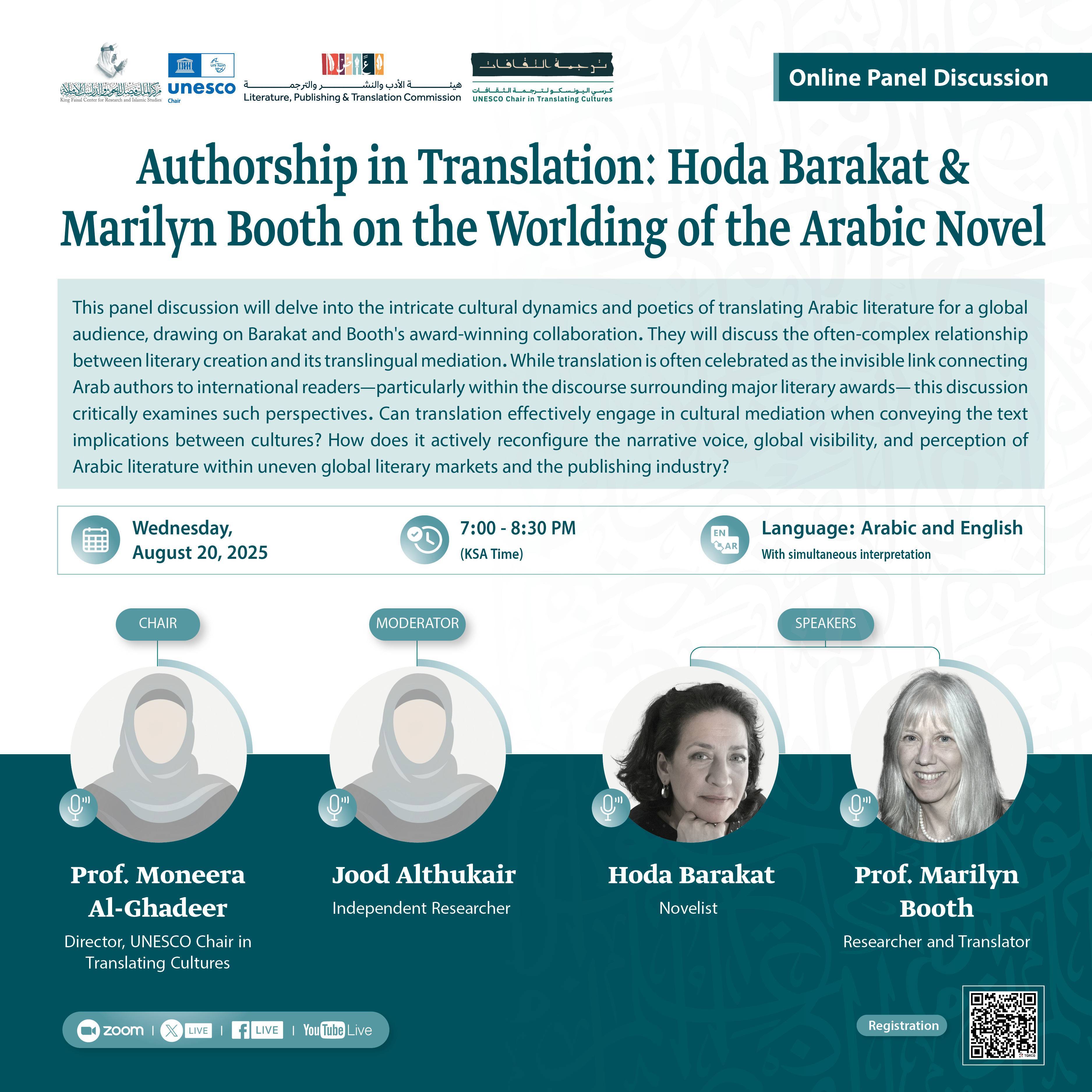2025-08-20
1447年2月26日/公历2025年8月20日(周三),由沙特文学、出版和翻译委员会支持的费萨尔国王学术与伊斯兰研究中心联合国教科文组织文化翻译讲席举办了主题为“写作与翻译:胡达·巴拉卡特、玛琳·布思与阿拉伯小说的世界性”的线上讨论活动,邀请小说家胡达·巴拉卡特和知名翻译家玛琳·布思教授参与对话。此次活动吸引了广泛关注,80余名对文化翻译议题感兴趣的人士线上出席。
讲席主席穆妮拉·艾勒加迪尔博士在开场发言中指出,本次讨论活动触及讲席“文化翻译、触达全球”的核心使命,强调文学体裁、作家与出版人共同塑造了阿拉伯文本走向世界的轨迹。然而“世界文学”往往更关注市场中的战略定位,以及经由翻译所产生的宣传效应。主持活动的焦德·扎基尔强调称,翻译并非单纯的语言转换,而是具备重新塑造“世界文学”意义的力量。
小说家胡达·巴拉卡特首先阐述了她对阿拉伯语翻译至英语所面临挑战的思考,高度肯定了译者玛琳·布思捕捉阿拉伯语的细腻神韵与独特精神的能力。她指出,其作品被译介至其他语言,成为与不同文化与思想世界相遇的契机,希望自己的作品能够以全球性的文学标准来衡量,而不是局限在地区的读者群体中。她同时提到,其某部作品的早期译本没有忠实于阿拉伯语原文,导致原文意义被削弱。在她看来,真正成功的翻译应当是译者的灵魂与原作语言灵魂的相遇。
玛琳·布思则表示,作家与译者各自拥有创造性的领域,但唯有双方在中途汇合,才能真正抵达小说本身的声音。她谈及翻译的亲密过程,指出其离不开译者、作者、出版方和编辑之间的持续互动。她强调,之所以在译文中保留大量阿拉伯语词汇,是为了维护文本的韵律感与思想深度。她特别指出,翻译至英语时往往面临巨大责任和复杂性,因为英语译本经常被作为转译其他语言的源文,而非直接依据阿拉伯语源文进行翻译。
在对谈结束时,胡达·巴拉卡特与玛琳·布思共同呼吁,必须努力让阿拉伯文学重新获得其应有的地位,使其能够自豪地活跃于“世界文学”的舞台之上。

